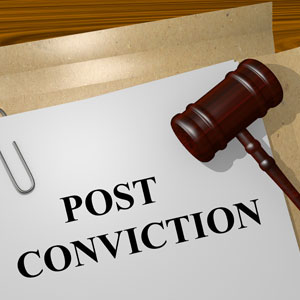Call Now For A Personalized Confidential Consultation!
Hablamos Español
Call Now For A Personalized Confidential Consultation!
Hablamos Español

Criminal convictions often carry unexpected or unforeseen consequences. While you might not have been able to timely file an appeal, you may not realize that post-conviction relief options are available in California. An experienced attorney can guide you through the process. This article will explain:
Post-conviction relief is one of two primary methods of challenging a criminal conviction or sentence after it has been entered. The first is an appeal, which must be pursued within strict time limits. However, even after the appeals process has been exhausted, you may still seek post-conviction relief.
As a whole, post-conviction relief goes beyond the direct appeals process: it offers an opportunity to address issues that may not have been raised during the trial or appeal, such as new evidence, procedural violations, or the discovery of legal errors that significantly impacted the outcome of your case.
Nearly every defendant is guaranteed the right to request a direct appeal of a conviction following a jury trial or after any pretrial ruling affecting a constitutional right. However, a direct appeal must be filed immediately after the conviction and within the statutory time frame— 30 days for a misdemeanor and 60 days for a felony.
Post-conviction relief is different. It is not nearly as constrained by deadlines. It can be sought later, as there is no statutory requirement for when a post-conviction relief request must be filed.
The remedies available through post-conviction relief are also broader. In a direct appeal, you can only challenge issues that occurred in court. By contrast, post-conviction relief allows you to raise issues that were not addressed during the trial. This means the court may address matters not previously considered, but it won’t necessarily rule on any other issue.
One key difference is that the appellate court is not required to rule on a post-conviction relief request. Unlike a direct appeal, there is no guarantee of post-conviction relief in any case.
The key to understanding post-conviction relief is that it is only available if you are on probation or suffering from some form of collateral consequence as a result of your conviction. Common circumstances that may warrant post-conviction relief include:
A post-conviction relief motion can even be filed simultaneously with a direct appeal. However, since post-conviction relief involves issues outside the trial record, a separate petition is required. For example, you can file a writ of habeas corpus alongside a direct appeal, but each must follow its own procedure, even if they seek similar remedies.
Ultimately, determining whether you qualify for post-conviction relief requires the guidance of a skilled lawyer with significant experience in both trial and appellate matters.
In California, there are many forms of post-conviction relief, offering a wide range of remedies. Examples include:
Each of these options is distinct and operates independently of the direct appeal process. Determining which forms of relief may apply to your case requires the guidance of a skilled defense attorney who can evaluate your unique circumstances and chart the best course forward.
Evidence discovered after the trial that was not raised or objected to during the original court proceedings can be especially valuable. Examples of such evidence include:
These types of evidence can be investigated, raised, and presented during the post-conviction relief process to support your request for relief.
One of the most straightforward forms of post-conviction relief involves modifying a probation period—either terminating it early or expunging the conviction altogether. These simpler processes can make a significant difference by improving your ability to secure employment, find housing, or address other challenges a conviction might cause. Felony convictions, in particular, often create barriers that can make moving forward in life exceptionally difficult.
Another common benefit of post-conviction relief is vacating a conviction when you were not properly advised of the immigration consequences of your plea. For instance, if you were told while in custody that pleading guilty was the only way to be released, but your attorney failed to inform you that the plea could jeopardize your ability to remain in the United States, this could form the basis for relief.
My office has successfully vacated convictions on this basis alone, enabling clients to pursue permanent residency or citizenship—opportunities that would have been impossible without post-conviction relief.
Another powerful example is obtaining removal from the sex offender registry. This type of relief can improve access to housing and employment while also eliminating the stigma and embarrassment associated with being listed on the registry.
If you are considering post-conviction relief, it’s essential to consult with an attorney to discuss the specifics of your case—even if the evidence against you at trial seemed strong. The focus should be on the conviction itself and the collateral consequences you are facing.
Collateral consequences vary from person to person. Even with strong evidence, you may not have received effective assistance from your attorney, which could have resulted in your conviction. This is particularly true for individuals who were never advised of the immigration consequences of a plea.
In such cases, the strength of the evidence is less important. What matters is whether you would have sought to negotiate a different resolution had you fully understood the severity of the collateral consequences.
The key is consulting with an attorney to explore your options and determine the best course of action for your situation. Don’t give up hope, but understand that post-conviction relief requires effort and is not automatic.
For more information on Post-Conviction Relief In California, an initial consultation is your next best step. Get the information and legal answers you need by calling (415) 782-6002 today.
Copyright©2025, Law Office of E. Michael Linscheid. All Rights Reserved.